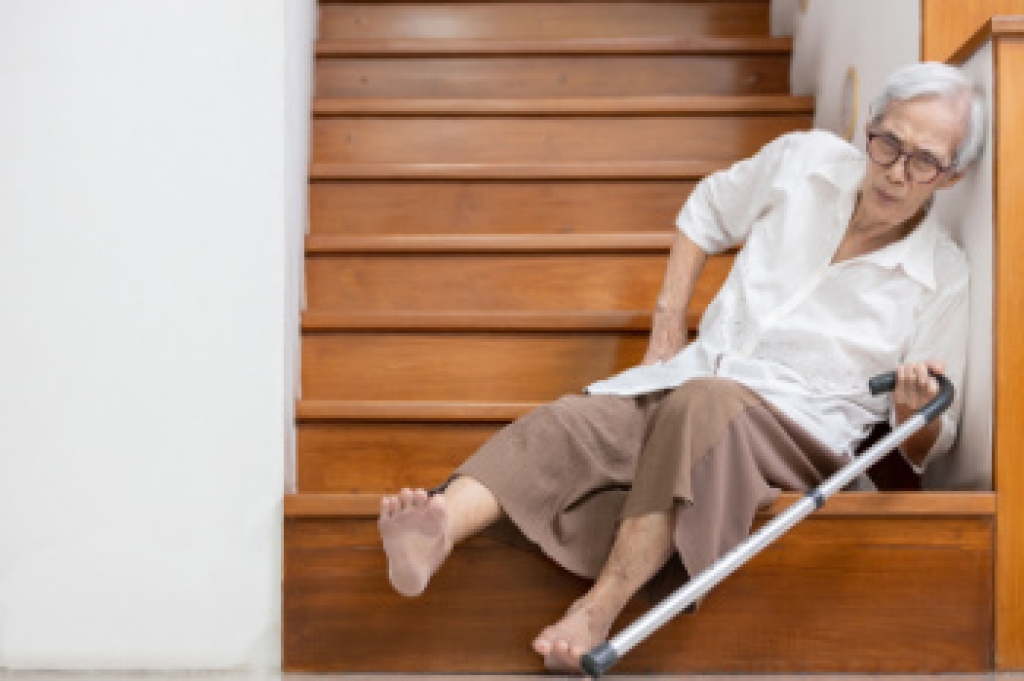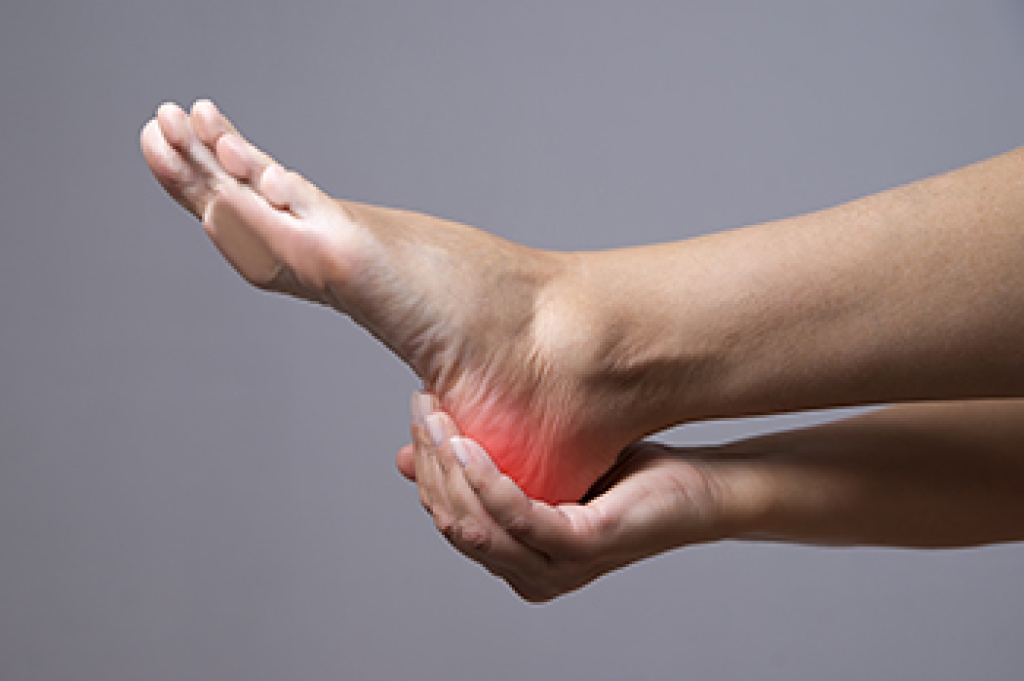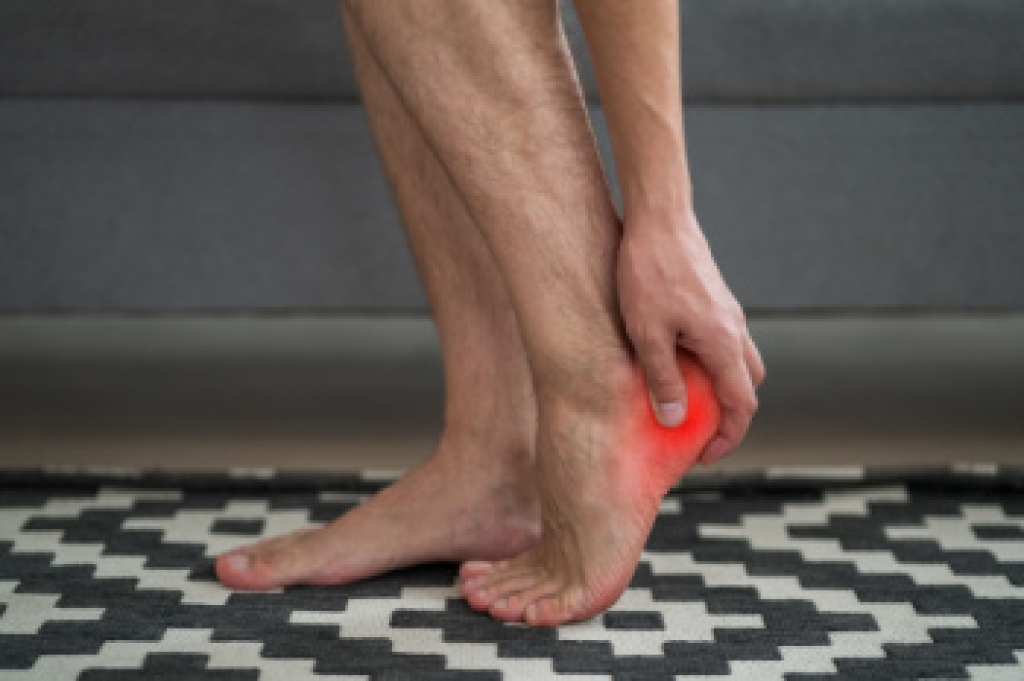Connect With Us
Blog
Blog
How Gout and Pseudogout Differ

Gout and pseudogout both cause sudden joint pain in the feet, but they come from different types of crystal buildup. Gout occurs when uric acid crystals form in a joint, usually in the big toe, causing redness, swelling, and intense pain. Pseudogout occurs when calcium crystals form in the cartilage and move into the joint, often affecting the ankle or midfoot. Both can cause warmth, tenderness, and stiffness that make it difficult to stand or walk. The pain from pseudogout can last longer and affect more than one joint, while gout usually affects one joint at a time. A podiatrist can determine which condition is present by examining the joint, ordering X-rays, or testing a small sample of joint fluid. Early diagnosis helps reduce pain and protect the joints from lasting damage. If you suffer from gout flare-ups, it is suggested that you make an appointment with a podiatrist for a diagnosis and treatment.
Gout is a painful condition that can be treated. If you are seeking treatment, contact Wendy L. Grossman, DPM from New Jersey. Our doctor will treat your foot and ankle needs.
What Is Gout?
Gout is a form of arthritis that is characterized by sudden, severe attacks of pain, redness, and tenderness in the joints. The condition usually affects the joint at the base of the big toe. A gout attack can occur at any random time, such as the middle of the night while you are asleep.
Symptoms
- Intense Joint Pain - Usually around the large joint of your big toe, and it most severe within the first four to twelve hours
- Lingering Discomfort - Joint discomfort may last from a few days to a few weeks
- Inflammation and Redness -Affected joints may become swollen, tender, warm and red
- Limited Range of Motion - May experience a decrease in joint mobility
Risk Factors
- Genetics - If family members have gout, you’re more likely to have it
- Medications - Diuretic medications can raise uric acid levels
- Gender/Age - Gout is more common in men until the age of 60. It is believed that estrogen protects women until that point
- Diet - Eating red meat and shellfish increases your risk
- Alcohol - Having more than two alcoholic drinks per day increases your risk
- Obesity - Obese people are at a higher risk for gout
Prior to visiting your podiatrist to receive treatment for gout, there are a few things you should do beforehand. If you have gout you should write down your symptoms--including when they started and how often you experience them, important medical information you may have, and any questions you may have. Writing down these three things will help your podiatrist in assessing your specific situation so that he or she may provide the best route of treatment for you.
If you have any questions, please feel free to contact our office located in Bloomfield, NJ . We offer the newest diagnostic and treatment technologies for all your foot care needs.
Ways Seniors Can Help Prevent Falling

Falls in older adults often stem from both internal factors, such as poor balance or weakened muscles, and external factors like shoes that lack adequate support. The feet play a central role in stability, especially among the senior population. Even minor problems like corns, calluses, or loss of sensation from neuropathy can affect balance. Ill-fitting shoes, slippery soles, or loose flip-flops increase the risk of slipping. Stiff or worn-down footwear can alter gait and make it harder to react to uneven surfaces. Regular foot exams are important to detect changes in joint flexibility, arch collapse, or reduced feeling in the toes, which can interfere with safe walking. A podiatrist can evaluate foot strength and structure, prescribe custom orthotic inserts for support, and recommend footwear that improves balance and traction. If you have fallen or are at risk for falling, it is suggested that you make an appointment with a podiatrist for an exam and guidance.
Preventing falls among the elderly is very important. If you are older and have fallen or fear that you are prone to falling, consult with Wendy L. Grossman, DPM from New Jersey. Our doctor will assess your condition and provide you with quality advice and care.
Every 11 seconds, an elderly American is being treated in an emergency room for a fall related injury. Falls are the leading cause of head and hip injuries for those 65 and older. Due to decreases in strength, balance, senses, and lack of awareness, elderly persons are very susceptible to falling. Thankfully, there are a number of things older persons can do to prevent falls.
How to Prevent Falls
Some effective methods that older persons can do to prevent falls include:
- Enrolling in strength and balance exercise program to increase balance and strength
- Periodically having your sight and hearing checked
- Discuss any medications you have with a doctor to see if it increases the risk of falling
- Clearing the house of falling hazards and installing devices like grab bars and railings
- Utilizing a walker or cane
- Wearing shoes that provide good support and cushioning
- Talking to family members about falling and increasing awareness
Falling can be a traumatic and embarrassing experience for elderly persons; this can make them less willing to leave the house, and less willing to talk to someone about their fears of falling. Doing such things, however, will increase the likelihood of tripping or losing one’s balance. Knowing the causes of falling and how to prevent them is the best way to mitigate the risk of serious injury.
If you have any questions, please feel free to contact our office located in Bloomfield, NJ . We offer the newest diagnostic and treatment technologies for all your foot care needs.
Understanding Heel Pain in the Morning

Heel pain in the morning can make those first steps of the day uncomfortable and difficult. Common causes include plantar fasciitis, which creates sharp pain from inflammation of the tissue along the bottom of the foot, and Achilles tendinitis, which causes stiffness and soreness at the back of the heel. Rheumatoid arthritis can lead to joint swelling and tenderness, while hypothyroidism may cause muscle and joint discomfort that contributes to heel pain. A podiatrist can evaluate the underlying cause through examination and imaging tests, then develop a personalized treatment plan to relieve pain and restore mobility. If morning heel pain is affecting your daily routine, it is suggested that you visit a podiatrist who can determine what the cause is, and offer effective relief and treatment solutions.
Many people suffer from bouts of heel pain. For more information, contact Wendy L. Grossman, DPM of New Jersey. Our doctor can provide the care you need to keep you pain-free and on your feet.
Causes of Heel Pain
Heel pain is often associated with plantar fasciitis. The plantar fascia is a band of tissues that extends along the bottom of the foot. A rip or tear in this ligament can cause inflammation of the tissue.
Achilles tendonitis is another cause of heel pain. Inflammation of the Achilles tendon will cause pain from fractures and muscle tearing. Lack of flexibility is also another symptom.
Heel spurs are another cause of pain. When the tissues of the plantar fascia undergo a great deal of stress, it can lead to ligament separation from the heel bone, causing heel spurs.
Why Might Heel Pain Occur?
- Wearing ill-fitting shoes
- Wearing non-supportive shoes
- Weight change
- Excessive running
Treatments
Heel pain should be treated as soon as possible for immediate results. Keeping your feet in a stress-free environment will help. If you suffer from Achilles tendonitis or plantar fasciitis, applying ice will reduce the swelling. Stretching before an exercise like running will help the muscles. Using all these tips will help make heel pain a condition of the past.
If you have any questions, please feel free to contact our office located in Bloomfield, NJ . We offer the newest diagnostic and treatment technologies for all your foot care needs.
Causes of Warm or Hot Feet

Warm or hot feet can be uncomfortable and may signal an underlying issue. Common causes include long hours of standing or walking, wearing shoes that do not allow airflow, or having a medical condition that affects circulation. Athlete’s foot, which is a fungal infection, can also cause heat, itching, and burning sensations. Nutrient deficiencies, particularly in B vitamins, may contribute to nerve irritation, while peripheral neuropathy related to diabetes or other conditions can cause persistent warmth or burning pain. A podiatrist can perform a thorough evaluation to identify the cause, treat infections, manage nerve conditions, and recommend proper footwear. If your feet have become unusually warm or hot, it is suggested that you schedule an appointment with a podiatrist who can offer effective relief and treatment solutions.
Foot Pain
Foot pain can be extremely painful and debilitating. If you have a foot pain, consult with Wendy L. Grossman, DPM from New Jersey. Our doctor will assess your condition and provide you with quality foot and ankle treatment.
Causes
Foot pain is a very broad condition that could be caused by one or more ailments. The most common include:
- Bunions
- Hammertoes
- Plantar Fasciitis
- Bone Spurs
- Corns
- Tarsal Tunnel Syndrome
- Ingrown Toenails
- Arthritis (such as Gout, Rheumatoid, and Osteoarthritis)
- Flat Feet
- Injury (from stress fractures, broken toe, foot, ankle, Achilles tendon ruptures, and sprains)
- And more
Diagnosis
To figure out the cause of foot pain, podiatrists utilize several different methods. This can range from simple visual inspections and sensation tests to X-rays and MRI scans. Prior medical history, family medical history, and any recent physical traumatic events will all be taken into consideration for a proper diagnosis.
Treatment
Treatment depends upon the cause of the foot pain. Whether it is resting, staying off the foot, or having surgery; podiatrists have a number of treatment options available for foot pain.
If you have any questions, please feel free to contact our office located in Bloomfield, NJ . We offer the newest diagnostic and treatment technologies for all your foot care needs.
Blog Archives
- 2025
- 2024
- 2023
- 2022

